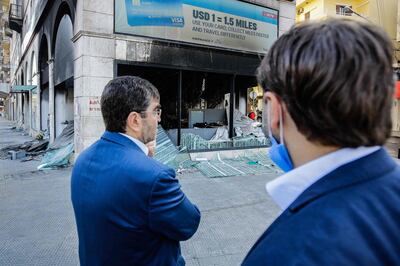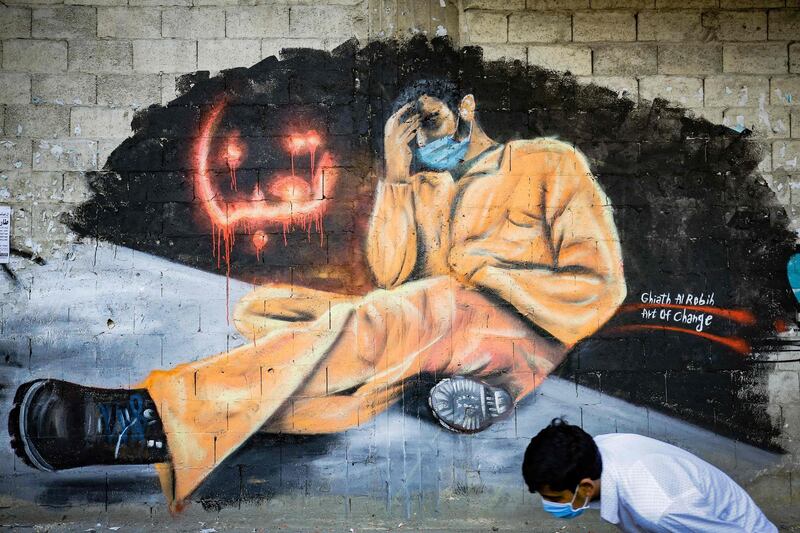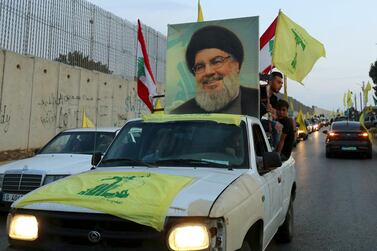In Lebanon, a new wave of protests has taken over the streets of Beirut and extended to cities all over the country. Demonstrators have blocked roads and burnt tyres. In Tripoli, some attacked a bank – the latest in a number of similar incidents in the past week.
Thousands of people defied physical-distancing rules and a nationwide lockdown to participate in protests that have been dubbed the “Monday of Hunger”. The public show of anger has been met with increased force by security forces, leaving one unarmed protester dead.
That people are ready to put their lives and health at stake to convey their grievances shows the extent of their despair. No excuses should be made for the use of violence or attacking property, but the vast majority of demonstrators are peaceful and beginning to feel they are running out of options.
Last October, more than a million Lebanese took to the streets in a peaceful protest against a sectarian ruling elite that has been in power since the end of the country’s civil war 30 years ago. That same elite has now brought the country’s economy to the brink. Shortly after the onset of the protests, an unprecedented financial crisis hit the country. A shortage of US dollars, to which the Lebanese pound is pegged, triggered restrictions on bank withdrawals in foreign currencies. Many fear that their lifelong savings have now been lost.
The Lebanese pound has lost 40 per cent of its value and inflation has compounded already-deteriorating living conditions. People are angry at the banks that have stopped them from taking control of their own money during a crisis, and resentment was compounded by leaked reports of millionaires and other powerful figures pulling their fortunes out of the banking system and skirting them away abroad. People are also angry at politicians, who have failed to resolve this crisis after six months. Members of Parliament appointed Hezbollah-backed Hassan Diab as Prime Minister after the protest movement led his predecessor Saad Hariri to resign. Mr Diab’s cabinet has thus far failed to implement the policies and reforms Lebanon so desperately needs.
Lockdown measures, though undoubtedly necessary for the protection of public health, have only made a terrible economic situation worse. Restriction on movement and businesses have deprived Lebanon’s most vulnerable from their main sources of income. Last week, parliamentarians stopped short of approving an $800 million aid package for the poor as political bickering prematurely ended their session. And instead of acknowledging their mistakes and making way for change, most politicians have resorted to the same, tired tactics.
In a televised speech last week, Mr Diab pointed fingers at Lebanon's Central Bank governor Riad Salameh, whom he criticised for a lack of transparency and implicitly blamed for the current financial crisis. A report published in The National on April 15 also revealed the efforts of Hezbollah to extend its reach to the Central Bank. Framing the governor, whose mandate was extended in 2016 by President Michel Aoun, a key ally of Hezbollah, as the sole cause of Lebanon's financial woes is not only simplistic. It plays into the hands of Hezbollah.

With no independent banking authority, there is little chance that Lebanon can one day receive the international financial assistance it so desperately needs. And Hezbollah has long opposed seeking help from the International Monetary Fund, as such assistance would come at the price of structural reforms undermining its hold on the country.
Lebanon has immense potential for economic growth and social progress. Instead, its people are forced to seek opportunities abroad, or risk being pushed into poverty at home. As crises compound, the ability to reform becomes ever more limited. It is high time that Beirut’s politicians wake up to the call of their people and act.






